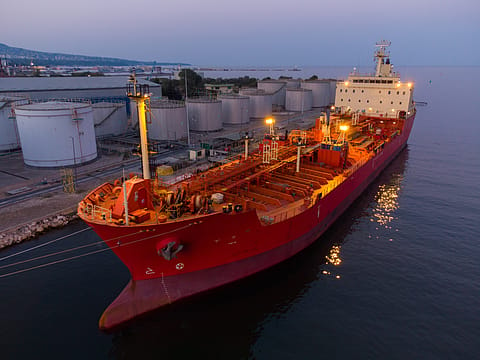As Strait of Hormuz becomes a global flashpoint in Iran-Israel conflict, India’s oil lifeline hangs by a thread
The Strait of Hormuz is one of the world’s most strategically vital maritime chokepoints.

India may soon face disruptions in oil and goods imports due to escalating tensions between Israel and Iran, warns a new report by the Global Trade Research Initiative (GTRI). As the conflict intensifies, key maritime trade routes—particularly the strategic Strait of Hormuz—risk being blocked. This narrow waterway is critical for transporting oil and gas to India. Any escalation could drive up fuel prices, delay shipments, and stoke inflation. Indian companies operating ports in the region may also be vulnerable to missile strikes and infrastructure damage, the report cautions.
GTRI cautions that the Strait of Hormuz is particularly at risk, given the narrow waterway is wholly controlled by Iran, and in the wake of the conflict intensifying, which could draw in the U.S., this might prompt the Iranian authorities to block this crucial passage.
The Strait of Hormuz is one of the world’s most strategically vital maritime chokepoints. Located between the Persian Gulf and the Gulf of Oman, it serves as the sole sea passage for over a fifth of global oil trade. Every day, around 20 million barrels of oil pass through the strait, making it critical for major importers like India, China, Japan, and European nations. Its narrow width—just 21 miles at its tightest point—makes it especially vulnerable to military or geopolitical disruptions. Any blockage can severely impact global energy prices and supply chains, amplifying tensions across oil-dependent economies and international markets.
“India has significant trade exposure to both warring nations,” said the GTRI report. In FY2025, India exported goods worth $1.24 billion to Iran and $2.15 billion to Israel, while imports stood at $441.9 million from Iran and $1.61 billion from Israel. But more importantly, nearly two-thirds of India’s crude oil and half of its liquefied natural gas (LNG) imports travel through the Strait of Hormuz.
This waterway is just 21 miles wide at its narrowest point, yet it handles about 20% of all oil traded worldwide. Iran has recently threatened to close it, which could have a major impact on India’s economy. If oil shipments are delayed or blocked, prices could go up, shipping and insurance costs would rise, and India could face higher inflation. This would also put pressure on the rupee and make it harder for the government to manage its budget.
Tensions flared up further on June 15, when Iran launched missiles at the Israeli port of Haifa, which is partly owned by India’s Adani Ports. This port handles over 30% of Israel’s imports, and early reports suggest that the attack caused damage to port infrastructure and nearby oil refineries. According to GTRI, this raises concerns about potential damage to Indian investments and commercial operations in the region.
The impact on global oil markets has already been seen. Kaynat Chainwala, AVP-Commodity Research at Kotak Securities, said: “WTI crude oil witnessed a staggering 14% rally earlier in Friday’s session, the largest single-day gain since May 2020, climbing to $77.62 per barrel, the highest since January.”
Recommended Stories
This spike came after Israel struck Iran’s nuclear and missile sites, raising fears of further retaliation and supply disruptions. “The Strait of Hormuz is a chokepoint for nearly 20% of global oil flows, and any threat to its safety adds a geopolitical risk premium,” she added.
Although prices later fell slightly, the market continues to be volatile. As fighting between Tel Aviv, Jerusalem, and Tehran continues for a fourth straight day, energy prices remain unpredictable. Some short-term relief came from strong retail sales data in China, which lifted market sentiment briefly, but the overall risk remains high.